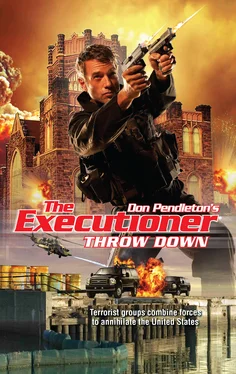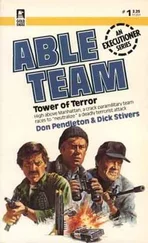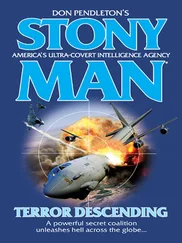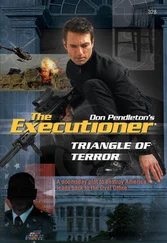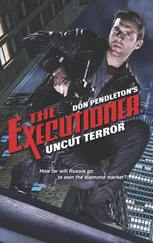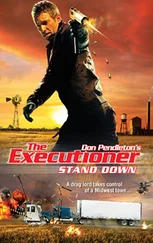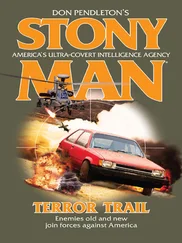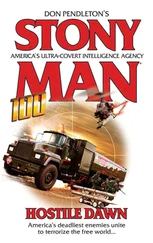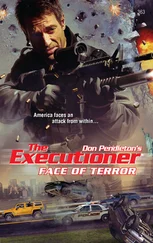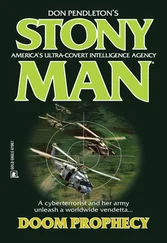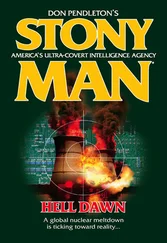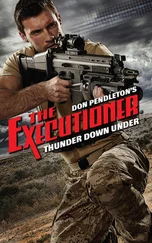“So,” Martinez said. “How can we be of service to you during your last few days in office?”
The dictator sat quietly for a moment, then said, “I would like to send each of you some presents.”
“And they are...?” Bartovi asked.
The dictator glanced at the side of his computer, assuring himself that the red security light was on and the meeting was being scrambled beyond anything the Americans might be able to piece together into coherence. “I must move out my weapons,” he said. “To Syria and Iran, I would like to send my biological and chemical supplies.” He paused again, taking in another breath. “For Venezuela, I have a very special gift.”
“Special gift?” Martinez repeated.
“I have one nuclear warhead,” the dictator said. “But no missiles that will reach the United States from Baghdad.” He paused yet again, this time for dramatic effect. “Launched from your country, however, Señor Martinez, it is another story.”
“Let us make sure we are all on the same page, as the infidel Americans say,” Parnian murmured. “You are expecting us to enter into a protracted war with the United States?”
“Of course not,” the Iraqi said quickly. “You would have no better chance of winning than I do.” A certain sense of satisfaction flowed through him as he spoke the words. His colleagues had reminded him that his forces could never defeat those of the U.S. It was gratifying to remind them in turn that they could be no more successful than he. “What I would like you to do,” he said, “is simply hide these weapons until it appears to the world that they never existed in the first place. When they have searched my country high and low and found nothing, the weapons of mass destruction, or WMDs, as their cowboy president loves to call them, will appear to have been nothing but a political ploy. Americans will believe their leader used them simply as an excuse to take over Iraq.”
“And they will turn against him,” Bartovi said, nodding on the screen. “The Americans are quick to do that.”
“Exactly,” the Iraqi said, and he found himself nodding, too. “And in the next election, they will vote for someone as different from their current president as possible.”
All four men chuckled softly. “They always do,” Parnian said. “Republican, Democrat, liberal, conservative. They bounce from one extreme to another, never happy with anyone they have elected.”
“Precisely,” the Iraqi leader said. “And I will wait them out. When they go home, I will emerge stronger than ever.”
“If they do not find you first,” Martinez stated, staring out from the screen. “If they do, you will be tried in the World Court in Geneva. And with all due respect, my fellow president, you will be found guilty and probably hanged.”
A surge of fear washed over the Iraqi, but he pushed it to the side. No one—not even the mighty Americans—would be able to ferret him out of hiding. Not here, in his own country.
The fear left his soul. For a moment, the possibility that his ego had overtaken his common sense replaced it, but he pushed that thought aside, as well.
“That will not happen,” he said, staring at Martinez. “But just in case the million-to-one shot comes through, I would like you all to pass my gifts on to some of our other friends. Friends who do not have obvious borders, or buildings and cities that could be bombed in retaliation.”
“You are speaking of al Qaeda,” Parnian said.
“And Hamas and Hezbollah,” Bartovi added.
“Indeed I am,” the Iraqi said. “Not to mention the Taliban. In the unlikely event that I do die or am captured, I want millions of American lives taken in revenge.”
For a moment, all four leaders were quiet. Then Martinez said quietly, “Send me your gift.”
“And to us, ours,” Parnian stated.
“We will comply with your wishes,” Bartovi said. “And even after you return to power, we can make good use of your gifts. Or rather, as you said, our freedom-fighting associates can.”
“It is time that the Middle East rose again,” the Iraqi said. And quickly added, “With, of course, our South American friends.”
“Then it is settled,” Bartovi said. “We are ready for delivery as soon as you are able.”
The Iraqi dictator smiled into the split screen of his computer. “They are already on their way,” he said. “Good evening, gentlemen.”
“Good evening,” the other three men replied.
The Iraqi dictator reached up and tapped the button that shut down his computer. Then he sat back in his chair and found himself chuckling again.
The people of the United States were the smuggest human beings in the world, in his opinion. They would find that they were not as prepared to take over Iraq as they thought. He would disappear for the duration of the war—which would not last long, due to the Americans’ impatience. And when they had left again he would reemerge stronger than ever.
The hunted dictator’s chuckling became full-blown laughter. His plan was perfect.
What could possibly go wrong?
1
Mack Bolan had known it would be only a matter of time.
After all, what softer target could Islamic terrorists find than small, unguarded Christian churches?
The flutter of the helicopter blades above his head did little to drown out the gunfire Bolan heard below as Jack Grimaldi, Stony Man Farm’s top pilot, paused the chopper in midair above the tiny Catholic church standing out strangely in the middle-income residential area. Bolan recalled what he’d been told during the short helicopter “hop” from Chicago to Detroit.
The Catholic chapel had been built with money, and on a vacant lot, donated by an elderly retired schoolteacher who had never married. Having no heirs, she had passed on what little there was of her estate to the Church, with the request that the chapel be built in the medieval style reminiscent of many small Catholic churches in Europe. Her specifications had been followed to the letter, according to Stony Man Farm’s source of information, and Bolan was slightly surprised that the city had been willing to rezone the lot for the unusual building.
Looking down through the windshield of the whirlybird, Bolan counted an even dozen armed men hiding behind statues of saints and firing AK-47s. Others had entered the chapel and were shooting through broken stained glass windows.
They all appeared to be on the ground floor of the three-story building.
Atop the church, however, one side of the cross mounted on the steeple had been shot away. The sight caused Bolan, also known as the Executioner, to frown. Detroit Police cars and a pair of SWAT vans encircled the building. While some of the officers spoke into handheld walkie-talkies and cell phones, most were too busy returning fire toward the church. But surely none of them were such poor marksman that they had missed their targets by two stories.
“Bring her down another twenty feet or so, Jack,” Bolan told his pilot and longtime friend. “If I’m going into this gunfight I’d just as soon not start it with a broken leg.”
“You got it, big guy,” Grimaldi said, and reached for the control panel in front of him. Seconds later the helicopter began to drop through the air like a well-controlled butterfly. As they descended, Bolan saw the reason for the shot that had hit the cross on the steeple.
It had not been poor marksmanship. From this new vantage point, he could see that two of the terrorists had climbed all the way to the roof. Rather than blasting away with assault weapons, they were taking their time with bolt-action sniper rifles.
Bolan considered landing the chopper on the flat area of the church’s roof. So far, the enemies below hadn’t taken much interest in the helicopter. The cops, of course, wouldn’t shoot at him or Grimaldi. And the terrorists had probably surmised that the unmarked aircraft was from a news channel. They wouldn’t shoot, at least not until Bolan tipped his hand as an enemy combatant. Like all terrorists, they wanted all the news coverage they could get.
Читать дальше
